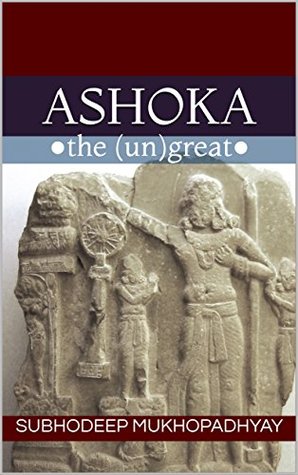Ashoka the Ungreat by Subhodeep Mukhopadhyay - Review by Abhishek Desikan
Ashoka the Ungreat looks at the life and times of Ashoka and paints a perspective opposed to the mainstream narrative which is that of a just and peaceful ruler. What gives this perspective credence is the evidence is based on the same triad of the Rock edicts, Ashokavadana and the Sri Lankan texts on which contemporary historians base their claim for Ashoka’s ‘greatness’. However, only the parts which suit their narrative have been taken into consideration, while the others which describe Ashoka’s tyranny, religious zealousness and incongruencies between the edicts and the texts have been ignored.
Take for example the Kalinga war, and Ashoka’s supposed conversion to Buddhism and his subsequent embracing of the religion to become a peace-loving king. This is a mainstream narrative which has been percolated across school textbooks in India. In reality, Ashoka had converted to Buddhism before the Kalinga war and continued to massacre and kill people who opposed Buddhism after the war.
Many more examples such as this are present, which leads one to believe that Ashoka wasn’t even close to being the ideal ruler we assume him to be. The author also hints at why Ashoka, who was a forgotten figure for most of Indian history was revived during the British rule and subsequently as a post-Independence symbol of India, and he believes that Nehruvian-Socialism played a role in requiring an ancient link to an icon with a similar mindset.
The book itself is largely a collection of conclusions and inferences from other authors and independent researchers, and the author merely reiterates their point. Thus, it isn’t a great standalone book but is a useful introduction and reference for people who want to learn more about Ashoka.

Originally published here.